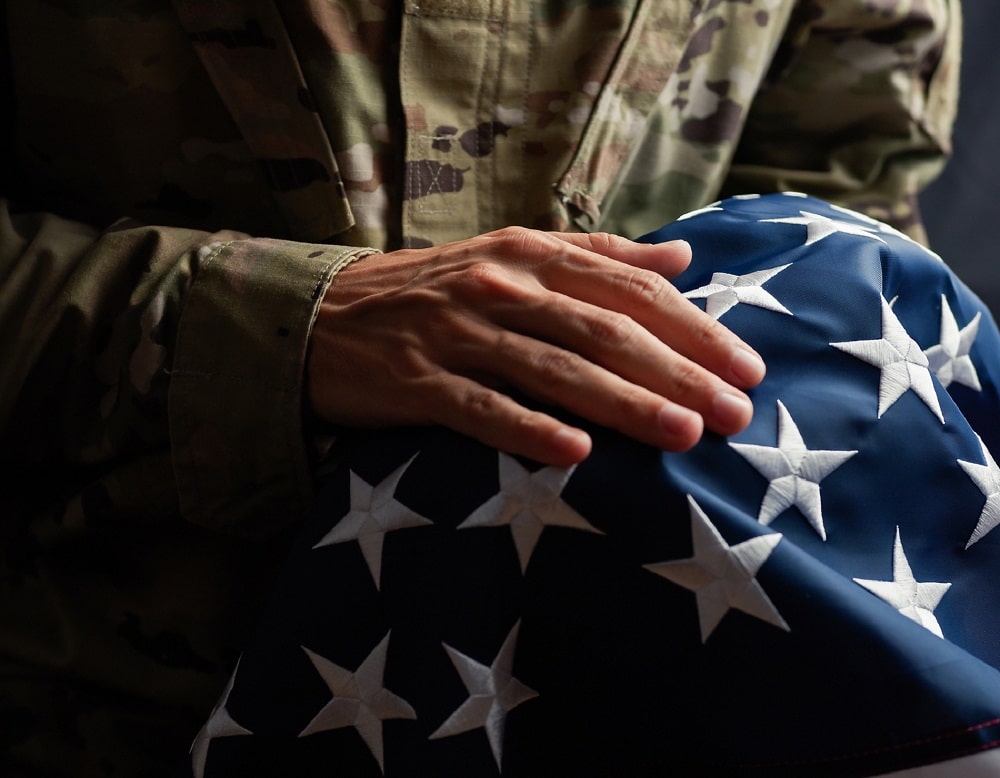Veteran Disability. It’s All We Do.
Without proper guidance, navigating the complex VA system can be overwhelming. Disabled veterans are often left fighting not only for their health but for the benefits they’ve rightfully earned. Our experienced VA disability attorneys specialize in simplifying complex VA procedures and legal jargon.
We fight to overcome missed deadlines, errors, and confusion to ensure you receive the benefits you deserve, with a proven 96% success rate.
For over 30 years, Hill & Ponton has supported veterans and their families nationwide. We believe no veteran should fight alone, and our goal is to help you secure the compensation and support you need for your future.
We Help You Win the Benefits You Deserve

Disability Benefits for Veterans
VA service connected disability compensation benefits are monthly payments made to veterans, and, in some cases, their families. The veteran is entitled to compensation when he can show that this disability is related to an injury or event in service. The disability payments, known as the disability rating are based on the degree of the current disability. A veteran does not have to be completely disabled to receive compensation benefits.

Benefits for Veterans’ Families
Widows and widowers of deceased veterans may also be entitled to payments based on a disability of their spouse. The VA law provides for a monthly payment, known as DIC benefits, where a service connected condition contributed to the death of the veteran or where the veteran was totally disabled because of a service connected condition for a certain period of time before the death.

Our Expert Lawyers Fight For You
Hill & Ponton’s VA disability attorneys and dedicated legal team are committed to supporting veterans through every stage of the appeals process. Here’s how we can assist you:
Case Review: We thoroughly assess your case to determine eligibility for benefits and what types of benefits you may qualify for.
Gathering Evidence: We help collect critical pieces of evidence, including medical records, military records and lay statements, to build a strong and complete case.
Filing Your Appeal: We guide you through the process, ensuring all legal arguments are prepared and deadlines are met.
Navigating Complex VA Procedures: Our team breaks down the often confusing and frustrating VA regulations, helping you understand the rules that apply to your specific situation.
Expert Representation: We represent veterans at all stages of the appeals process, whether you’re going before the Board of Veterans’ Appeals or the U.S. Court of Appeals for Veterans Claims.
We Answer Your Questions
What kind of cases does Hill & Ponton take?
Our lawyers specialize in obtaining proper compensation for disabled veterans. If you were denied or feel your VA rating is too low, we’re here to support you. Even if we can’t take your case, we have resources and tools to guide you toward the help you deserve. Contact us for a free consultation — we’ll work hard to connect you with the right assistance.
How many VA claims do you win?
We win 96% of the cases we take on.
How much will it cost me?
We charge nothing upfront and work on a contingency basis, meaning we’ll take a fee if we win your claim and recover retroactive benefits on your behalf. If we don’t win, you owe us nothing. We only get paid if you get paid.
Do you have attorneys near me?
So often we hear: I want the best VA disability lawyers near me! At Hill & Ponton, we’re proud to offer nationwide services, beyond our office in Orlando, Florida. In fact, 92% of our team works remotely, allowing us to assist veterans from anywhere in the country. We seamlessly communicate with clients regardless of location, providing the same dedicated service as if we were near you – no matter where you live.

Veteran-Focused Services – We’ll Tell You If You Don’t Need Us
We put disabled veterans first – always. And that means telling you when you DON’T need an attorney.
- First-time claims: Whether it’s an original claim, a claim for increase, or a reopened claim, VA has a duty to help you win. They’ll get your records and schedule a C&P exam if needed.
- Appeals for dependent benefits: VA often fails to pay for dependent benefits when a veteran wins service connected benefits. While an attorney can help, it’s often easier and faster to apply online through Ebenefits. You can also work with a Veteran Service Officer (VSO) for free.
- Missed C&P exam denials: Sometimes a veteran doesn’t get notice of a C&P exam or has a conflict, then VA denies benefits on this basis. Start by writing a letter explaining why you missed the exam and request a new one. This is potentially faster than an appeal. Only consider appealing if you don’t get a response after several months.
- When you have clear evidence: If you’re confident you have the evidence to prove your claim, you might not need an attorney.
If You Do Need a Lawyer for VA Disability, Consider This
- Experience beyond VA accreditation: Look for attorneys with specialized training in VA law. Simply obtaining ‘VA accreditation’ is easy and if it’s all the experience and training a lawyer has, it means they will be using your case to get training. Their errors could undermine your case. Your claim is too important to leave in the hands of an unexperienced attorney.
- Focus on VA law: Choose a firm or attorney specialized in VA benefits. This area of law is complicated and requires constant training and studying of the law as it changes. If a law firm practices in many areas of law, see if there are attorneys in the firm who only practice VA law. If not, you are trusting your case to someone who doesn’t specialize in this area.
- Personal consultation: Ensure you can speak with the attorney before signing a contract. Your VA claim is important to you. It is personal. Hiring an attorney is a big decision. You need to see what they can do to benefit your claim. You are agreeing to pay them, so make sure that you are going to get your money’s worth.